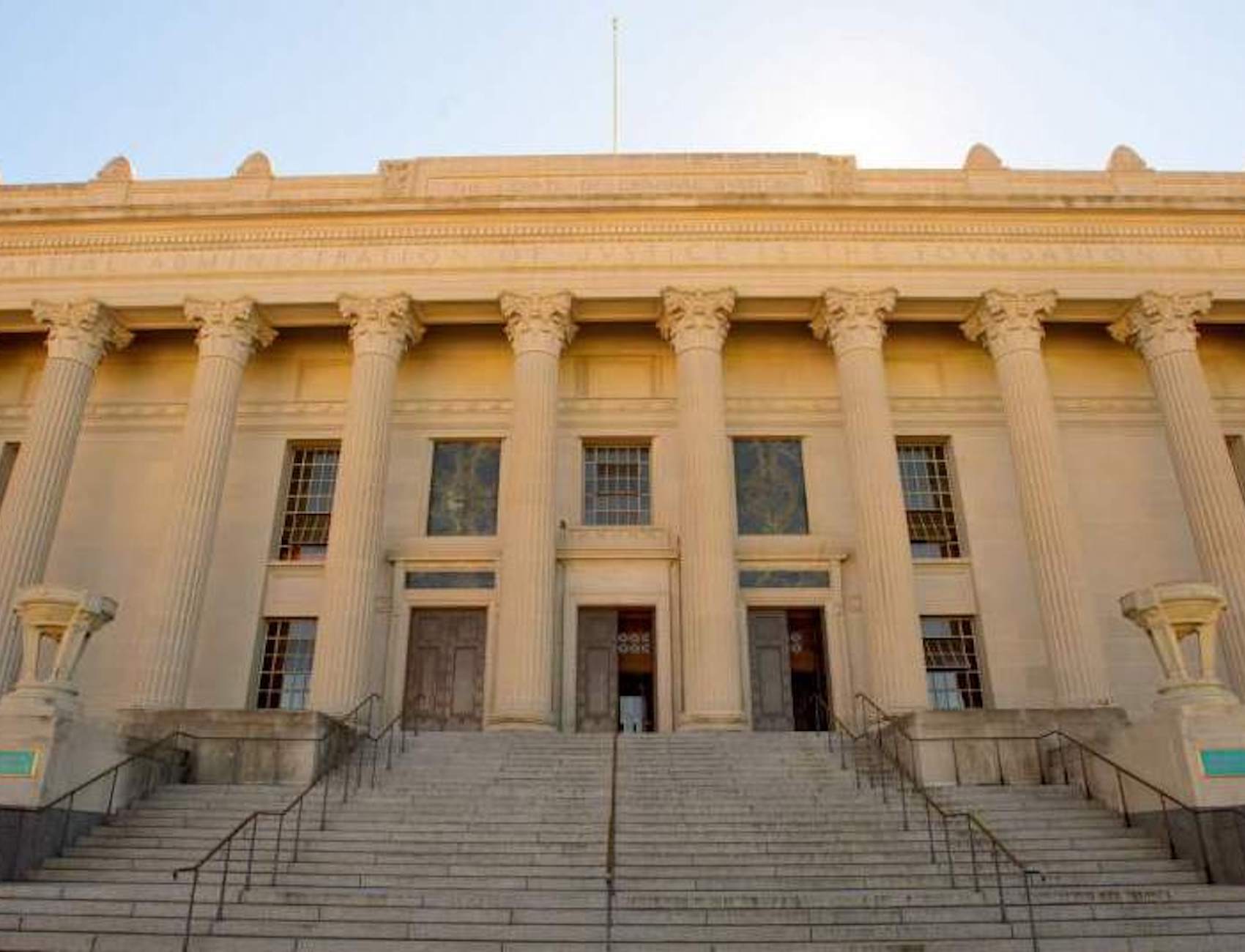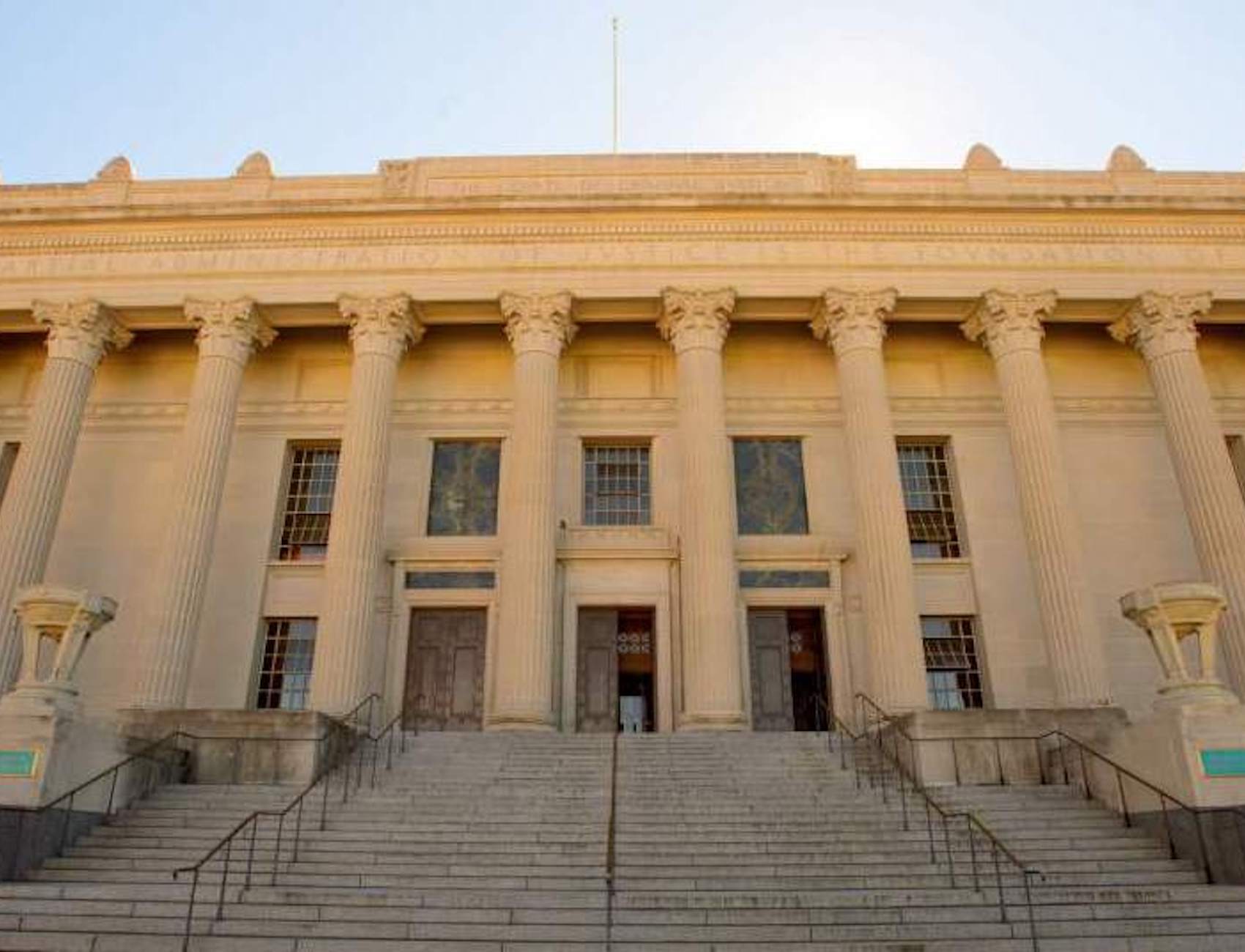Two New Orleans Public Defenders Elected Judge in a Push to “Flip the Bench”
Angel Harris and Nandi Campbell will become criminal court judges, bucking the norm of former prosecutors filling the role.
Katie Jane Fernelius | November 4, 2020


This article originally appeared on The Appeal, which hosted The Political Report project.
Angel Harris and Nandi Campbell will become criminal court judges, bucking the norm of former prosecutors filling the role.
In New Orleans, two public defenders were elected to become judges, marking a significant opportunity for criminal justice reform.
On Nov. 3, Angel Harris upset incumbent Franz Zibilich to win a seat as a judge on Orleans Criminal District Court. No judge on the criminal court has lost a bid for re-election in over 40 years.
Nandi Campbell also won a seat on the criminal court, beating her opponent, Lionel Burns, in a landslide.
In a victory speech, Harris said her win shows that voters believe “it is time to reimagine our criminal court system. We aren’t going to stand by and allow our communities to be treated with disrespect.”
Harris and Campbell were part of a slate of seven current and former public defenders running for judicial offices across the criminal, municipal, and juvenile courts in Orleans Parish. Their platforms included challenging the cash bail system and seeking alternatives to incarceration in a state often called the “incarceration capital” of the United States.
Though five of the candidates lost their races, their campaigns—and the victories of Harris and Campbell—are remarkable because, across the country, there’s a lack of judges with experience representing marginalized communities. In federal and state courts, judges are far more likely to have worked as prosecutors than public defenders.
In an October interview with The Appeal: Political Report, Harris talked about the challenge she faced.
“I am absolutely going up against the political machine,” Harris said. “I’m talking about bucking a system, so, of course, the establishment folks aren’t going to jump on board with me.”
Money was a key struggle for first-time candidates like Harris. As of their September filings, Zibilich had over $150,000 in campaign funds. Harris had under $14,000. Zibilich was endorsed by powerful local political groups like the Black Organization for Leadership Development (BOLD) and the Algiers Political Action Committee (APAC), which have endorsed and supported establishment figures within the criminal justice system.
Harris’s resume includes working as a public defender in both Orleans and Calcasieu parishes, a staff attorney with the Capital Punishment Project at the ACLU, and an attorney at the NAACP Legal Defense and Educational Fund. (Harris also used to work for The Justice Collaborative, of which The Appeal is a project.)
Like others who made up the public defender slate of judicial candidates, Harris ran on a platform critiquing the cash bail system and advocating for criminal justice reform.
Zibilich, who has served as a criminal court judge for nearly nine years, touted his efficiency in addressing the cases in his docket. Though Zibilich has earned awards for efficiency, he has been accused of disproportionately favoring prosecution at the expense of defendants. Zibilich has also faced criticism for comments he made during a 2016 sexual battery case. After a jury acquitted a 35-year-old man of rape but convicted him of stalking and illegally entering the home of a former girlfriend, Zibilich said he was considering vacating the conviction entirely because he thought the victim had sent “mixed messages” to the defendant.
Unlike some of the other progressive public defender candidates, Campbell managed to earn the endorsements of powerful political organizations like BOLD, the Community Organization of Urban Politics, and Voters Organized to Educate (VOTE), some of which endorsed candidates running against the other public defender candidates.
Campbell joined the Orleans Public Defenders office in 2008 and, the following year, she launched her own firm and worked as counsel with a leading criminal defense firm. She is an associate professor at Tulane Law School while still working as a contract public defender.
Burns, who has been both a prosecutor and a criminal defense attorney, previously ran for district attorney in 2014 against incumbent Leon Cannizzaro, but was disqualified.
These elections could serve to transform the local criminal legal system because judges exercise considerable discretion. In earlier elections this year, New Orleans advocates put the spotlight on judges’ roles in overseeing evictions. Advocates emphasize that there are many other ways a different type of judge could challenge the status quo in New Orleans. Judges could be more aggressive in challenging evidence presented by police officers, or in holding prosecutors accountable if they fail to disclose favorable evidence to the defense team, as they are constitutionally required to do. Judges could also choose not to impose high bail amounts or long sentences.
NOLA Defenders for Equal Justice, a group of former and current public defenders, came together earlier this year to advocate for the progressive slate of judge candidates. Jared Miller, a member of the group and a staff attorney at Orleans Public Defenders, told the Political Report in October that “people accused of crime who are Black or brown are people who the [criminal legal] system treats with a lot less humanity. … But these candidates have the experience of knowing these clients at a personal level.”
“To have these candidates who stand for our values come together and try to make change is really uplifting,” Miller said.


